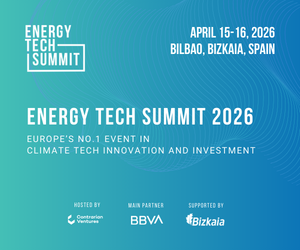Search - Search on Articles, Blogs & Tags
Total Results : 362
Zimbabwe agrees $230 million deal to upgrade power plants
- 2012-06-07 20:16:35
- Junior Isles
Zimbabwe’s government has approved a $230 million power deal between Zimbabwe Power Company (ZPC) and Indian firm WAPCOS Limited to upgrade boilers at three of the country’s thermal power stations, Energy and Power Development minister Elton Mangoma has said.
Eskom reduces power supply to Swaziland
- 2012-05-22 05:54:42
- David Flin
Swaziland Electricity Company has announced that it has instigated one hour load shedding blackouts on a rolling schedule.
Nigeria’s BPE to name winners of PHCN privatisation in October
- 2012-05-15 06:06:05
- David Flin
Nigeria’s Bureau for Public Enterprises (BPE) has said that the preferred bidders for the assets of the Power Holding Company of Nigeria (PHCN) will be announced in October, and that it hopes this privatisation will help to alleviate chronic electricity shortages.
Wind farm inaugurated on Cape Verde Islands
- 2012-04-21 06:12:07
- David Flin
Cabeólica has inaugurated a 2.5 MW wind farm on Boa Vista Island, part of the Cape Verde archipelago.
Eletrobras to build hydro power plants in Nigeria
- 2012-04-03 05:42:03
- David Flin
Olusegun Aganga, Nigeria’s Minister of Trade and Investment, has announced that the Nigerian Federal Government will sign an MOU with Eletrobras of Brazil to enable Latin America’s largest power utility to build hydro power plants in Nigeria.
GE reaches MoU for $10 billion investment in Nigeria
- 2012-03-27 13:13:15
- Junior Isles
General Electric has agreed a memorandum of understanding with Nigeria for $10 billion of investment in new power plants, in which it will have a 10-15 per cent equity stake, a Nigerian power ministry spokesman has said.
Mozambique firm cuts power to Zimbabwe over $80 million debt
- 2012-03-16 05:56:23
- David Flin
Mozambique’s Hydro Caharo Bassa (HCB) has cut off electricity supplies to Zimbabwe over an outstanding $80 million debt. The move has forced Zimbabwe to intensify load shedding.
Belgian firm to supply Nigeria with gensets
- 2012-02-22 05:46:37
- David Flin
Europower of Belgium has announced that it has formed a strategic partnership with Sydney and Samuels International, a Nigerian IPP, to supply gensets to the Nigerian market.
US to explore Tanzanian investment opportunities
- 2012-02-05 21:14:19
- Junior Isles
On 8th February, executives of several leading US energy companies will travel to Tanzania for a two day visit in order to “explore opportunities for investing in power -generation and fuel -supply projects”, a State Department official has said.
Nigeria outlines future power plans
- 2012-01-31 17:41:57
- Junior Isles
Nigerian Government has said it will slow down its plan for establishing new power generating stations by 2014.












